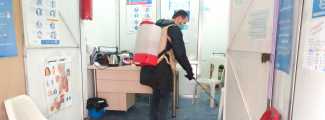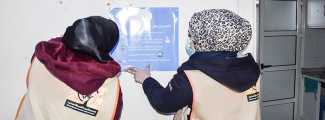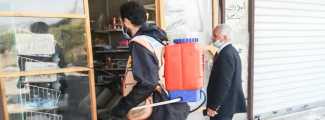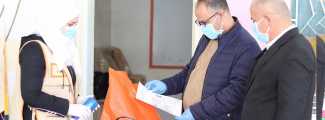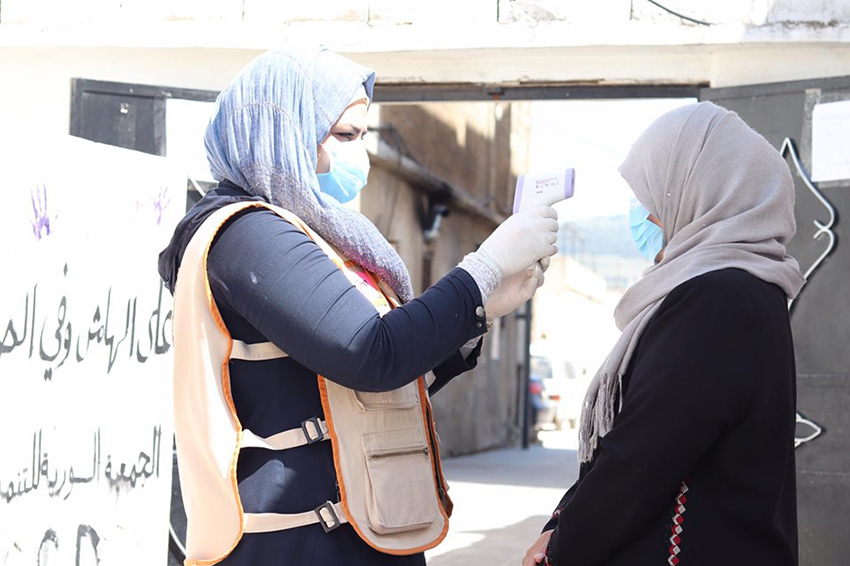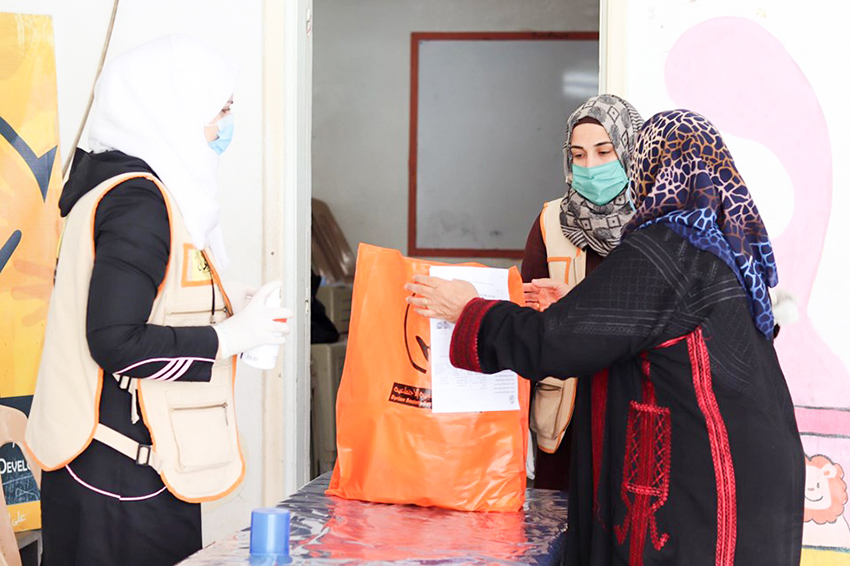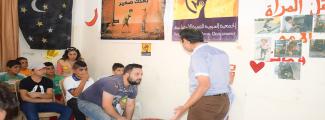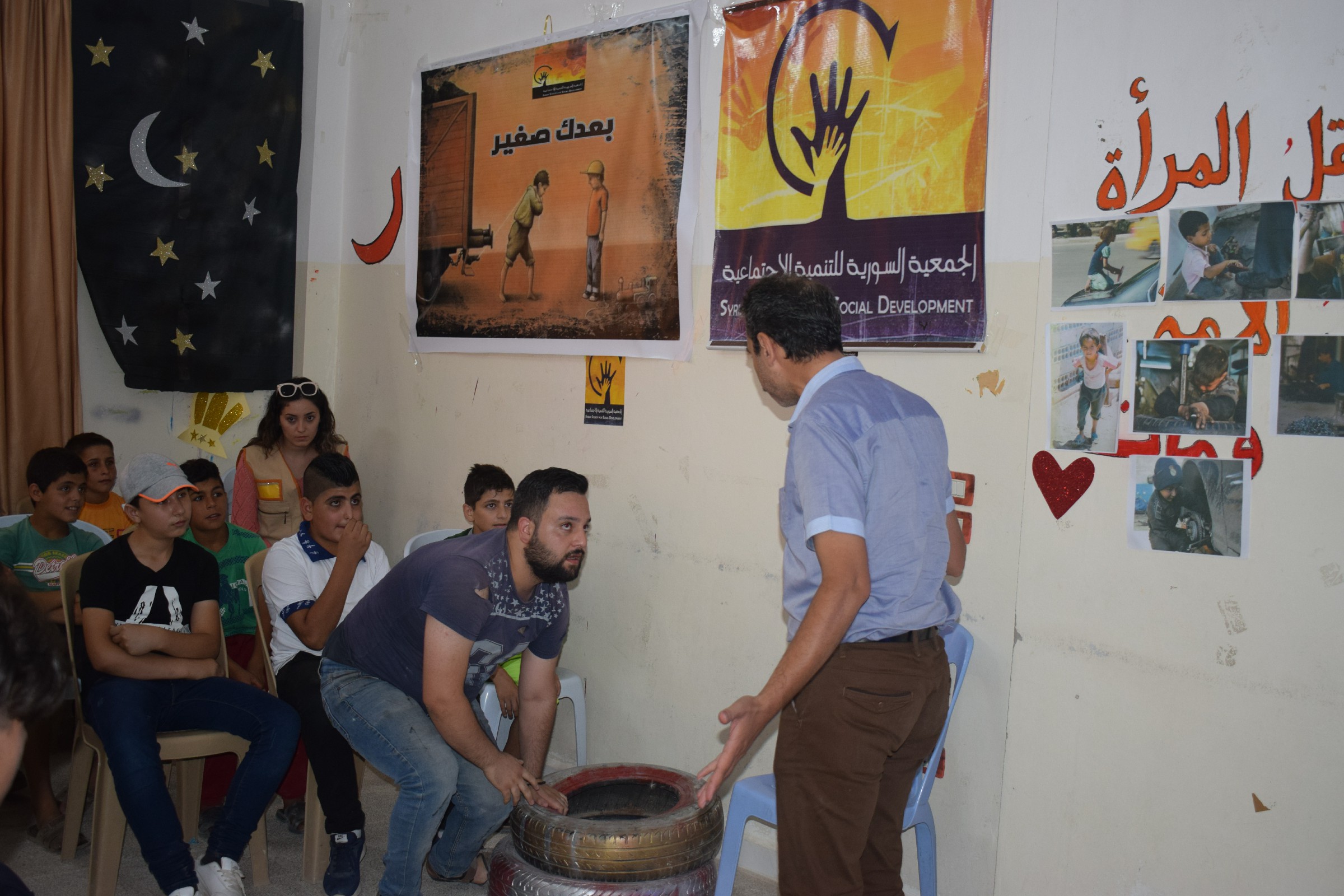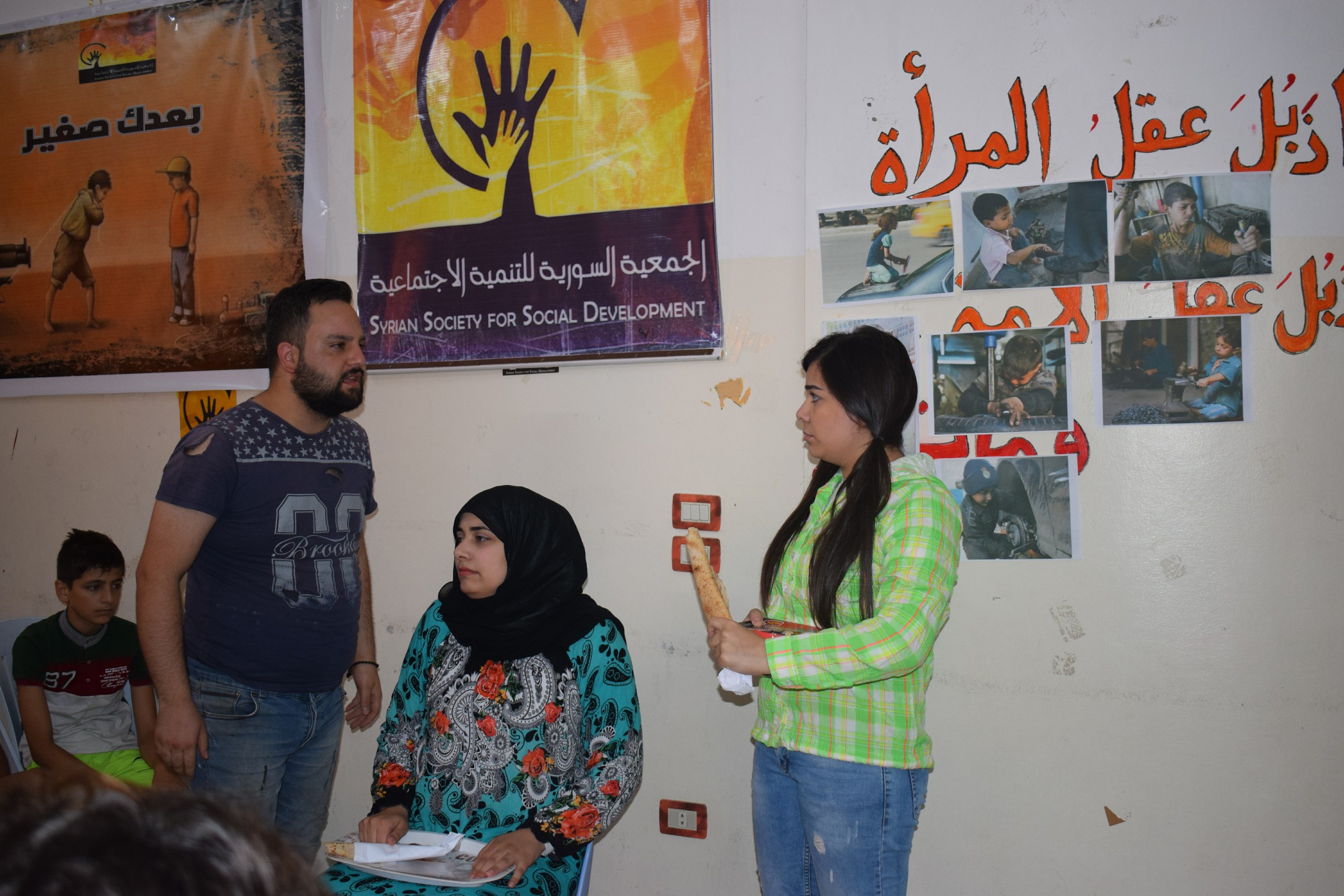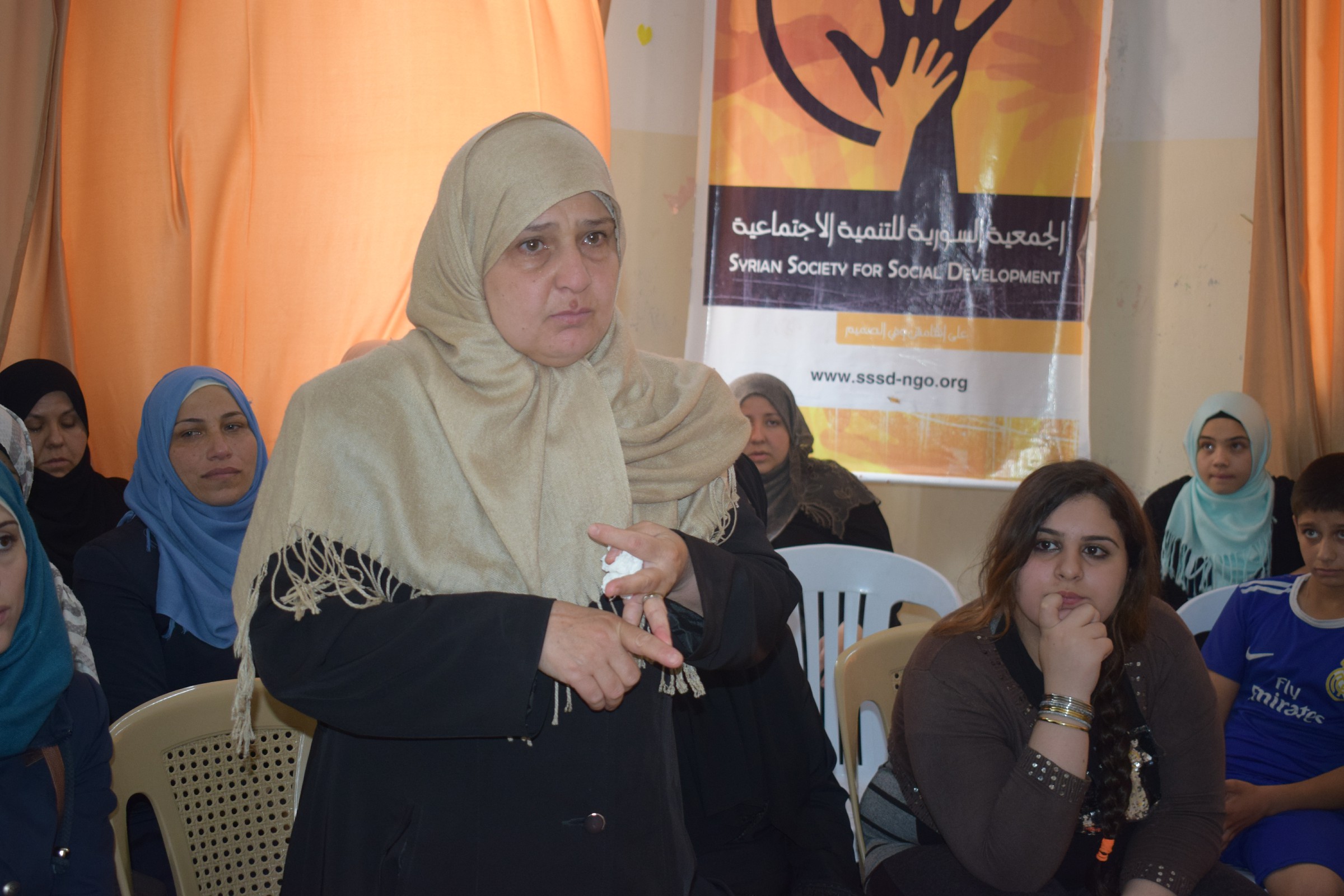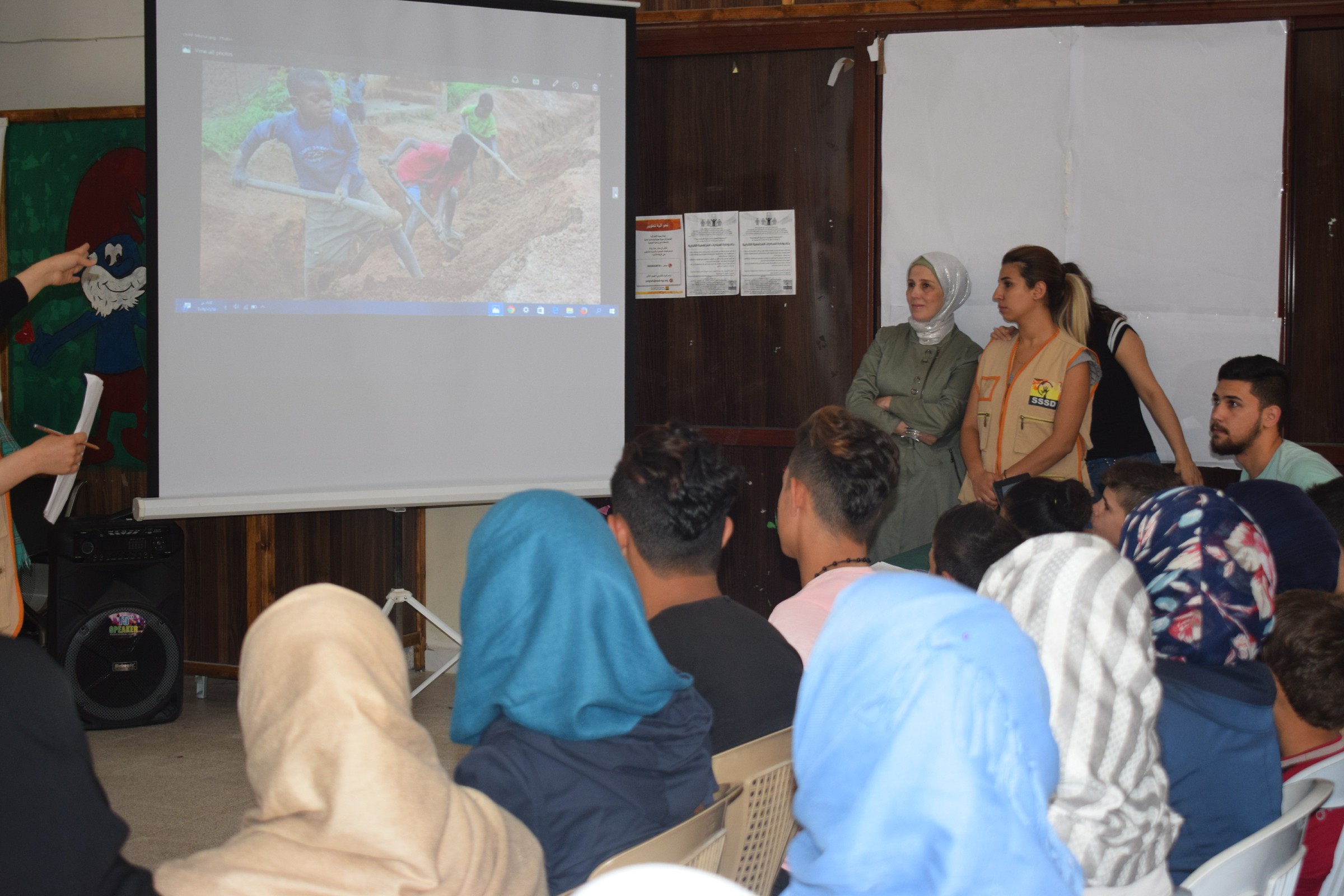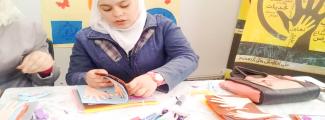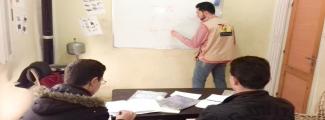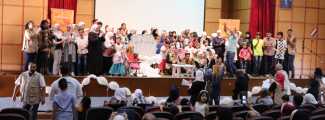Marah, Mohammed, Farah, and Ahmed are siblings aged 19,18, 17 and 15. Their close-knit relationship and support are impressive and this manifested when their mother passed away in 2005, the eldest sibling Marah was only 6 years and the youngest, Ahmed, was 2 years; the mother’s death prompted them to stick together sharing responsibilities, the girls handled house chores and the boys worked with their father in his sewing workshop, which was located in their temporary home during years of the Syrian Crisis.
Currently, they returned to their permanent residence in an area called Telephone Hawaai.
After some time has passed, their father got married to another woman and she gave birth to two children, Ali and Alia.
In addition to the huge responsibilities of the older siblings, they had to take care of their new siblings. The crisis had its toll on Aleppo City and the four siblings had to drop out of school, Marah, Mohammed, Farah and Ahmed quit when they were in the eighth, seventh, sixth and fifth grades respectively.
Their father did not believe in the importance of education, he himself had dropped out of school at the age of 12 dedicating his entire life to sewing works.
One day, the mobile team attached to Al- Beit Beitak Community Center visited the family, where the kids expressed their interest to sit for the exam of the basic education certificate and the father showed no objection.
Tough circumstances and the siblings’ weak educational levels did not stop them from pursuing their dream, they regularly attended the educational sessions and relentlessly worked on developing their skills in preparation for the exam, they became idols of hard work and determination among their peers.
During Math class, Mohmmed asked the facilitator to study at the center for long hours after the classes, in preparation for the exam, and the center’s team responded to his request.
Marah expressed her gratitude, “Here our focus level is better than home and we can directly inquire about things we do not understand.”
Summoning all their awareness and strength capacities, the four siblings exerted their utmost efforts; however, with the harsh circumstances, only Rama managed to pass the exam, while the other siblings acquired diversified skills in analysis, drawing conclusions, reading and writing, school and education discipline.
“Not a problem at all, Marah’s success is our success, next year we’ll sit for the national exam of the ninth grade, we will commit to classes in the center, if this won’t drive you bored.” Those were the words of the ambitious adolescent, Ahmed, reflecting strong will, high self-confidence, and resilience.

